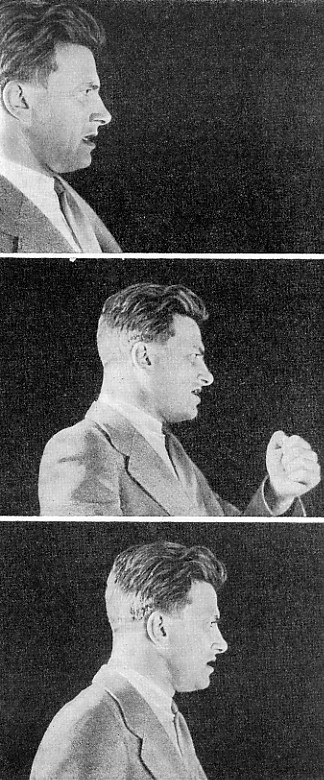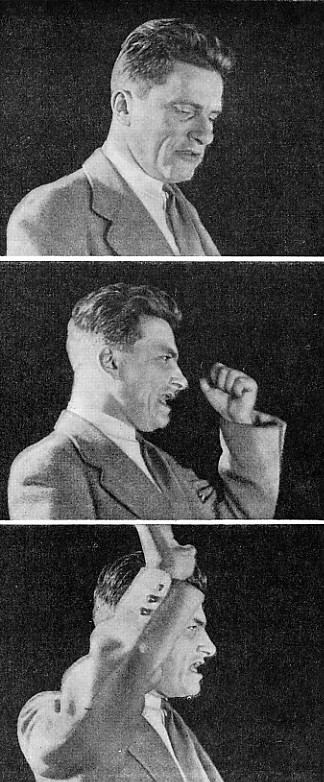

|
|

presents:
ON FUTURISM
by
Vladimir Mayakovsky
(1922)
Prior to the October Revolution, Futurism--as a unified, exactly formulated trend--did not exist in Russia.
Critics christened everything that was revolutionary and new with this name.
Our group, the so-called (unfortunately) Cubo-Futurists (V. Khlebnikov, V. Mayakovsky, D. Burliuk, A. Kruchenykh, V. Kamensky, N. Aseev, O.M. Brik, S. Tretyakov, B. Kushner) was a group of Futurists welded together by ideology.
We had no time to deal with the theory of poetry; we were busy putting it into practice.
The only manifesto of this group was the introduction to the anthology "A Slap in the Face of Public Taste",
published in 1913. It was a poetic manifesto, expressing the goals of Futurism in emotional slogans.
The October Revolution marked a departure of our group from the numerous Futuro-imagists who had moved away
from revolutionary Russia. It turned us into a group of "Communist-Futurists", with these literary tasks:
1) To establish the literary art as a tradecraft in words--not as an aesthetic stylization, but as the ability to solve in words any problem.
2) To respond to any task set by the present day;
a) to undertake work on vocabulary (new word formations, sound instrumentation, etc.)
b) to replace the conventional metrics of iambs and trochees with the
polyrhythms of language itself.
c) to revolutionize syntax (simplification of the forms of word
combinations, the shock of unusual word usage, etc.)
d) to renew the semantics of words and word combinations.
e) to create models of intriguing subject formations.
f) to reveal the ability of the word acting as poster.
The solution of the enumerated literary problems will create the possibility of satisfying needs in the most diverse spheres of literary creation (the form, article, telegram, poem, feuilleton, billboard, call to action, advertisement, and others).
Concerning the question of prose:
1) There is no genuinely Futuristic prose; there are individual attempts by Khlebnikov, by Kamensky,
Kushner's Meeting of Palaces--but these attempts are less significant than the poetry of these same authors. This is explained by the fact that:
a) Futurists make no distinction between the different genres of poetry and view all of literature as a unified literary art.
b) before the Futurists it was assumed that lyric poetry had its own circle of themes, its own look, different from the themes and language of so-called artistic prose; for Futurists, this distinction does not exist.
c) before the Futurists it was assumed that poetry had one set of tasks
(poetic), and practical speech another set (unpoetic); for Futurists, composing the call for a struggle
against typhoid and love poetry are merely different sides of the same literary process.
d) so far, Futurists have produced predominately poetry. This is because,
in the revolutionary epoch, when life has still not hardened, there is a demand for a lyric poetry of
slogans, whipping up the practice of revolution, and not a Nestorlike summing up of the results of this practice.
e) and only in the most recent time has the task of producing models of
the contemporary epic appeared before the Futurists. Not a bureaucratic-descriptive epic, but one that
is genuinely tendentious or fantastically utopian, presenting life not as it is, but as it undoubtedly
will be and should be.
V. Mayakovsky
1/IX 1922
Russian text from: Literaturnoye nasledstvo: Novoye o Mayakovskom. Glavnii redaktor: V.V. Vinogradov.
Izdatel'stvo Akademii Nauk SSSR. Moskva. 1958. st. 175-178.
English translation by: Eric Konkol
For more information on Mayakovsky and Futurism, see:
The LEF Program
|






